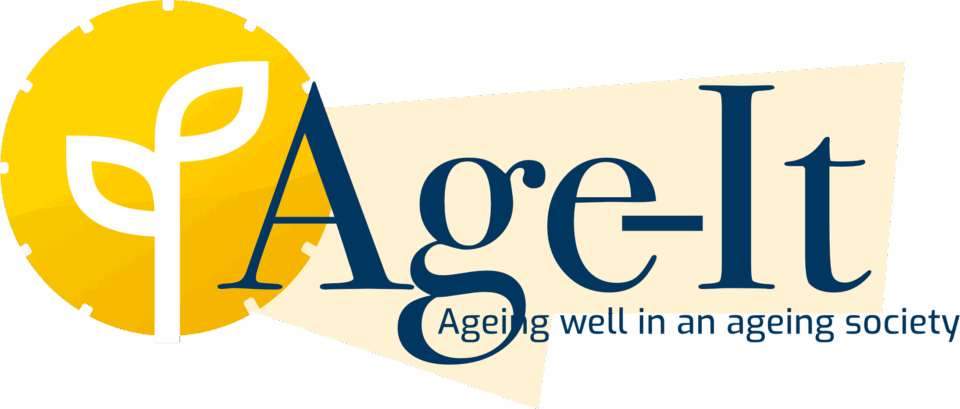
Concerning the study of the doping phenomenon, since the pioneering article of 2004 (i.e. Determinants of the intention to use doping substances: An empirical contribution in a sample of Italian adolescents),the research group’s interest focused primarily on the analysis of self-regulatory mechanisms (e.g. self-efficacy and moral disengagement) and belief systems (attitudes, subjective norms and perception of control) underlying individual choices regarding substance use in sport. Within well-defined theoretical frameworks such as the Theory of Planned Behavior and the Social-Cognitive Theory, specific paper-and-pencil intruments have been developed over the years with the aim of studying these mechanisms and belief systems in both individual and team sports contexts. Over the years, the data collected have made it possible to test predictive models of the use of doping substances over time on different samples of athletes, integrating the initial theoretical frames also with other theoretical perspectives such as the Achievement Goal Theory, or the analysis of specific situations of interpersonal interaction (i.e. interpersonal appraisals).
The interest in the study of the mechanisms underlying the “behavior” of the use of doping substances, over the years has also been accompanied by an interest in the development of anti-doping educational strategies and interventions as well as the systematic evaluation of their effectiveness. Overall, this interest has led to the development, both nationally and internationally, of educational interventions supported by funding from prestigious research institutions such as the Italian Ministry of Health, the European Union (EU), the International Olympic Committee (IOC) and the World Anti-Doping Agency (WADA).
More specifically, on the national front, an educational program based on “media literacy” has aimed at developing athletes’ awareness and ability to manage media messages on doping. The program has been implemented with both motor science students and high school students, including sports-high school students, showing in all cases a great impact on self-regulation systems related to media messages.
On the international front, on the other hand, different aspects that have been emphasized in the different intervention programs, going from the central role of the values of the SMART project, to the enhancement of an educational approach that favors the conscious choices of the SAFE YOU project, up to the importance of the perceived legitimacy of the anti-doping institutions of the LEGIT project.
Publications
- Chirico, A., Lucidi, F., Pica, G., Di Santo, D., Galli, F., Alivernini, F., Mallia, L., Zelli, A., Kruglanski, A.W. and Pierro, A. (2021). The motivational underpinnings of intentions to use doping in sport: A sample of young non-professional athletes. International Journal of Environmental Research and Public Health 18, 5411. https://doi.org/10.3390/ijerph18105411
- Galli, F., Palombi, T., Mallia, L., Chirico, A., Zandonai, T., Alivernini, F., De Maria, A., Zelli, A. and Lucidi. F. (2021). Promoting media literacy online: An intervention on performance and appearance enhancement substances with sport high school students. International Journal of Environmental Research and Public Health 18, 5596. https://doi.org/10.3390/ijerph18115596
- Woolway, T., Elbe, A., Barkoukis, V., Bingham, K., Bochaver, K., Bondarev, D., Hudson, A., Kronenberg, L., Lazuras, L., Mallia, L., Ntovolis, Y., Zelli, A., Petróczi, A. (2021). One does not fit all: European study shows significant differences in value-priorities in clean sport. Frontiers in Sports and Active Living. doi: https://doi.org/10.3389/fspor.2021.662542
- Mallia L, Chirico A, Zelli A, Galli F, Palombi T, Bortoli L, Conti C, Diotaiuti P, Robazza C, Schena F, Vitali F, Zandonai T and Lucidi F (2020). The Implementation and Evaluation of a Media Literacy Intervention About PAES Use in Sport Science Students. Frontiers in Psycholology 11: 368. https://doi.org/10.3389/fpsyg.2020.00368
- Mallia, L., Lucidi, F., Zelli, A., Chirico, A., Hagger, M. (2019). Predicting Moral Attitudes and Behavior in Young Team Sport Athletes: A self Determination Theory Perspective. Journal of Applied Social Psychology, 49(4), 249-263. https://doi.org/10.1111/jasp.12581
- Mallia, L., Chirico, A., Galli, F., Zelli, A., Sánchez, J.C.J., García-Mas, A., Lucidi, F. (2018). The role of achievement goals and moral disengagement in explaining moral attitudes and behaviours in sport. Revista de Psicología del Deporte, 27(3), 66-69. https://archives.rpd-online.com/article/download/v27-n5-mallia-chirico-galli-etal/2464-10951-2-PB.pdf
- Lazuras, L., Barkoukis, V., Loukovitis, A., Brand, R., Hudson, A., Mallia, L., Michaelides, M., Muzi, M., Petroczi, A. and Zelli, A. (2017). “I want it all, and I want it now”: Lifetime Prevalence and Reasons for Using and Abstaining from Performance and Appearance Enhancing Substances (PAES) among Young Exercisers in Five European Countries: Findings from the SAFE YOU Project. Frontiers in Psychology- Movement Science and Sport Psychology, 8: 717. https://doi.org/10.3389/fpsyg.2017.00717
- Lucidi, F., Mallia, L., Alivernini, F., Chirico, A., Manganelli, S., Galli, F., Biasi, V. and Zelli, A. (2017). The Effectiveness of a New School-Based Media Literacy Intervention on Adolescents’ Doping Attitudes and Supplements Use. Frontiers in Psychology 8: 749. http://dx.doi.org/10.3389/fpsyg.2017.00749
- Lucidi, F., Zelli, A., Mallia, L., Nicolais, G. Lazuras, L., Hagger, M. S. (2017). Moral attitudes predict cheating and gamesmanship behaviors among competitive tennis players. Frontiers in Psychology- Movement Science and Sport Psychology, 8: 571. http://dx.doi.org/10.3389/fpsyg.2017.00571
- Lazuras, L., Barkoukis, V., Mallia, L., Lucidi, F., Brand, R. (2017). More than a feeling: The Role of Anticipated Regret in Predicting Doping Intentions in Adolescent Athletes. Psychology of Sport and Exercise, 30: 196-204. http://dx.doi.org/10.1016/j.psychsport.2017.03.003
- Mallia, L., Lazuras, L., Barkoukis, V., Brand, R.; Baumgarten, Tsorbatzoudis, H., Zelli, A. Lucidi, F. (2016). Doping use in sport teams: The development and validation of measures of team-based efficacy beliefs and moral disengagement in a cross-national perspective. Psychology of Sport and Exercise, 25:78-88. http://dx.doi.org/10.1016/j.psychsport.2016.04.005
- Baumgarten, F., Lucidi, F., Mallia, L., Zelli, A., Brand R. (2016). Bury the inner hatchet: Complex propositions mediate the relationship of potentially discrepant implicit and explicit attitudes on doping intention. Performance Enhancement & Health, 5 (1),10-16 http://dx.doi.org/10.1016/j.peh.2016.01.002
- Mallia, L., & Lucidi, F. (2016). Dopare il corpo, dopare la mente… Il fenomeno del neuro-enhancement nei contesti educativi. Rome, Italy. Roma Tre Press. ISBN: 978-88-97524-88-5. http://romatrepress.uniroma3.it/repository/76/pdf/29ce572e-6551-45ad-bdb4-a613abe97026.pdf
- Zelli A., Mallia, L., Lucidi, F. (2015). “I am not sure what you mean…“: The possible contribution of interpersonal appraisals to social-cognitive accounts of doping use. In: Barkoukis, V., Lazuras, L. & Tsorbatzoudis H. (Eds), The Psychology of Doping in Sport. Routledge, pages 18-32. ISBN: 978-1-138-79347-7. https://www.routledge.com/The-Psychology-of-Doping-in-Sport/Barkoukis-Lazuras-Tsorbatzoudis/p/book/9781138705197
- Lucidi, F., Mallia, L., Zelli A. (2015). When the “how” may at least matter as much as the “what”: The value of qualitative approaches in doping research. In: Barkoukis, V., Lazuras, L. & Tsorbatzoudis H. (Eds), The Psychology of Doping in Sport. Routledge, pages 65-77. ISBN: 978-1-138-79347-7. https://www.routledge.com/The-Psychology-of-Doping-in-Sport/Barkoukis-Lazuras-Tsorbatzoudis/p/book/9781138705197
- Lucidi, F., Mallia, L., Zelli, A. (2014). Approcci Quantitativi e qualitativi nella ricerca sul doping. Movimento, 30 (1): 15-23.
- Lucidi, F., Zelli, A., Mallia, L. (2013). The contribution of moral disengagement to adolescents’ use of doping substances. International Journal of Sport Psychology, 44, 331-350. http://dx.doi.org/10.7352/IJSP 2013.00.000
- Mallia, L., Lucidi, F., Zelli, A., Violani C. (2013). Doping attitudes and the use of legal and illegal performance-enhancing substances among Italian adolescents. Journal of Child & Adolescent Substance Abuse, 22(3), 179-190. http://dx.doi.org/10.1080/1067828X.2012.733579
- Zelli, A., Lucidi, F., Mallia, L. (2010). The relationships among adolescents’ drive for muscularity, drive for thinness, doping attitudes and doping intentions. Journal of clinical sport psychology, 4 (1), 39-52. https://journals.humankinetics.com/view/journals/jcsp/4/1/article-p39.xml
- Zelli, A., Mallia, L., Lucidi, F. (2010). The contribution of interpersonal appraisals to a social-cognitive analysis of adolescents’ doping use. Psychology of Sport & Exercise, 11, 304-311. http://dx.doi.org/10.1016/j.psychsport.2010.02.008
- Lucidi, F., Zelli, A., Mallia, L., Grano, C., Russo. P.M., Violani, C. (2008). The Social-Cognitive Mechanisms Regulating Adolescents’ Use of Doping Substances. Journal of Sport Sciences, 26(5): 447-456. http://dx.doi.org/10.1080/02640410701579370
- Lucidi, F., Grano, C., Leone, L., Lombardo, C., & Pesce, C. (2004). Determinants of the intention to use doping substances: An empirical contribution in a sample of Italian adolescents. International Journal of Sport Psychology, 35, 133 – 148.
Researchers


